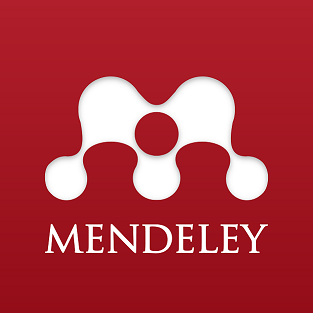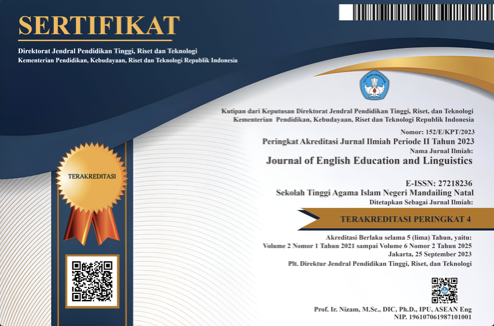Philippine Education in the Modern World: A Trench for Global Academic Success or another Year of Educational Failure?
DOI:
https://doi.org/10.56874/jeel.v1i2.301Abstract
This essay aims to identify and analyse perennial and current problems that need to be improved in Philippine education. For many years, education is believed to be the key to outsmart poverty and other economic issues (Butuyan, 2016). However, for the decades, the country’s educational system remains challenged by perennial issues which continue to escalate as the number of students increases each year that contributes to more societal dilemmas. Despite all this, the nation’s educational system has been withstanding several issues through initiating various interventions in accordance to its means of delivering quality education, allocating manageable tasks for teachers, and bringing forth calibre benchmarks that could lead the country out of the global academic ignominy. Thus, for the Philippines to attain its academic and economic goals, further research should be conducted not only to realize the cause of the issues but to contribute a better solution to each problem.
References
Bernardo, J. (2020). PH ranks last among 58 countries in Grade 4 math, science: study. Retrieved from https://news.abs-cbn.com/: https://news.abs-cbn.com/news/12/09/20/ph- ranks-last-among-58-countries-in-grade-4-math-science-study
Briones. (2019, November 20). Briones: Ensure educational continuity amid challenges. Retrieved from Department of Education: https://www.deped.gov.ph/2019/11/20/briones- ensure-educational-continuity-amid-challenges/
Briones, L. (2020, February 14). Sulong EduKalidad a move to innovate PH education, says Briones. Retrieved from Department of Education: https://www.deped.gov.ph/2020/02/14/sulong-edukalidad-a-move-to-innovate-ph- education-says-briones/
Butuyan, J. R. (2016). The Key to Solving Poverty. Retrieved from https://opinion.inquirer.net/: https://opinion.inquirer.net/95388/key-solving-poverty
Cudis, C. (2019, July 11). Labor, employer sectors unite vs. job mismatch. Retrieved from https://www.pna.gov.ph/: https://www.pna.gov.ph/articles/1074716
Durban, M., J., & Catalan, R. D. (2012). ISSUES AND CONCERNS OF PHILIPPINE EDUCATION THROUGH THE YEARS. ASIAN JOURNAL OF SOCIAL SCIENCES & HUMANITIES.
Khidhir, S. (2019, November 20). Global talent ranking tells a familiar ASEAN tale. Retrieved from theaseanpost.com: https://theaseanpost.com/article/global-talent-ranking-tells- familiar-asean-tale
Lugtu, R. C. (2018, June 14). Reforming the PH education system. Retrieved from https://www.manilatimes.net/: https://www.manilatimes.net/2018/06/14/business/columnists-business/reforming-the-ph- education-system/407929/
PUNONGBAYAN, J. (DECEMBER 4, 2019). [ANALYSIS] Dismal PISA rankings: A wake-up call for Filipinos. https://rappler.com/voices/thought-leaders/analysis-dismal-programme- international-student-assessment-rankings-wake-up-call-filipinos.
Read, L., & Atinc, T. M. (2017). Investigations into Using Data to Improve Learning: A Case Study. Global Economy and Development, 24.
Reyes, V. C. (2010). The Philippine Department of Education: challenges of policy implementation amidst corruption. Asia Pacific Journal of Education, https://www.researchgate.net/publication/236336134_The_Philippine_Department_of_E ducation_challenges_of_policy_implementation_amidst_corruption.
REYNALDO C. LUGTU, J. (2018, June 14). Reforming the PH education system. Retrieved from https://www.manilatimes.net/: https://www.manilatimes.net/2018/06/14/business/columnists-business/reforming-the-ph- education-system/407929/
TOMACRUZ, S. (2018, SEPT 4). DepEd reduces paperwork required of teachers. Retrieved from https://www.rappler.com/: https://www.rappler.com/nation/deped-reduces-number- paperwork-teachers
Downloads
Published
Issue
Section
License
All articles published in the Journal of English Education and Linguistics are licensed under a Creative Commons Attribution-ShareAlike 4.0 International (CC BY-SA) license. This means anyone is free to copy, transform, or redistribute articles for any lawful purpose in any medium, provided they give appropriate attribution to the original author(s) and Journal of English Education and Linguistics, link to the license, indicate if changes were made, and redistribute any derivative work under the same license.
Copyright on articles is retained by the respective author(s) without restrictions. A non-exclusive license is granted to the Journal of English Education and Linguistics to publish the article and identify itself as its original publisher, along with the commercial right to include the article in a hardcopy issue for sale to libraries and individuals.
Although the conditions of the Creative Commons Attribution-ShareAlike 4.0 International (CC BY-SA) license do not apply to authors (as the copyright holder of your article, you have no restrictions on your rights), by submitting to the Journal of English Education and Linguistics, authors recognize the rights of readers and must grant any third party the right to use their articles to the extent provided by the license.

This work is licensed under a Creative Commons Attribution-ShareAlike 4.0 International License.








